SmartCue vs Testbox vs Demostack Pricing: 2025 Guide
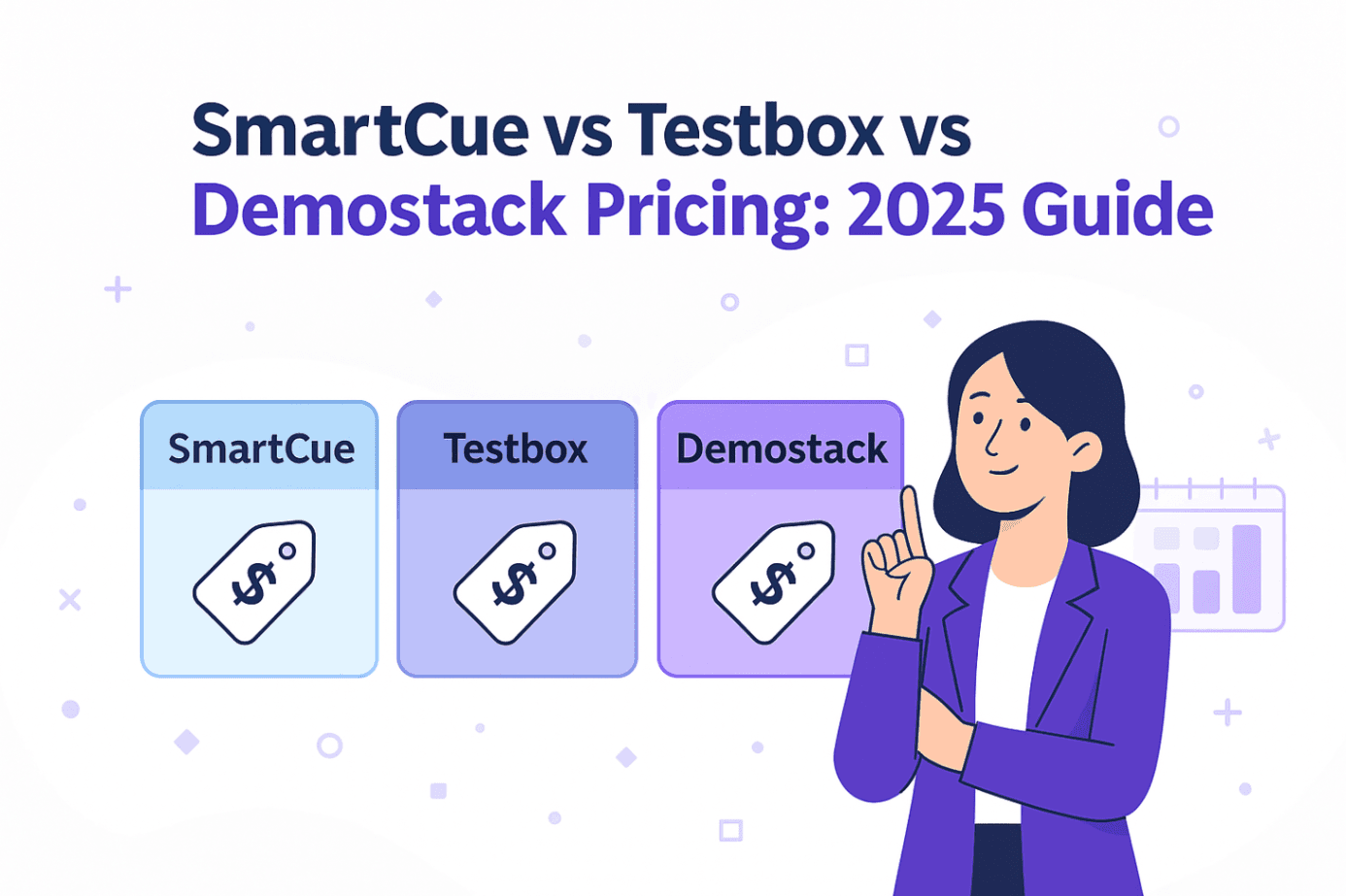
TL;DR
|
Ever been in a product demo where the sales team fumbled through tabs while the demo environment froze? We have, and it’s not just awkward, but it stalls the sales cycle.
The problem? Most demo automation tools either take too much manual work, lack ease of use, or come with a steep pricing model. That leaves reps stuck juggling clunky demo software and prospects wondering if they’re seeing the actual product or just a half-finished version.
In this blog, we’ll compare SmartCue, TestBox, and Demostack head-to-head. We’ll look at pricing, customization options, and practical trade-offs, so you know which demo platform helps you run smoother sales demos and close deals faster.
Platform Overviews: Pricing, Features, and Value
When it comes to demo software, every vendor promises smoother sales demos and better customer success. But let’s be honest, some tools make you feel like you need a support team just to get started. Others keep things refreshingly simple.
In this section, we’ll break down SmartCue, TestBox, and Demostack one by one. We’ll look at how each works, their pricing plans, and what you actually get for your money, so you can see which demo platform fits your team best.
SmartCue – Pricing, Features, and Value (G2 Rated 4.8/5)
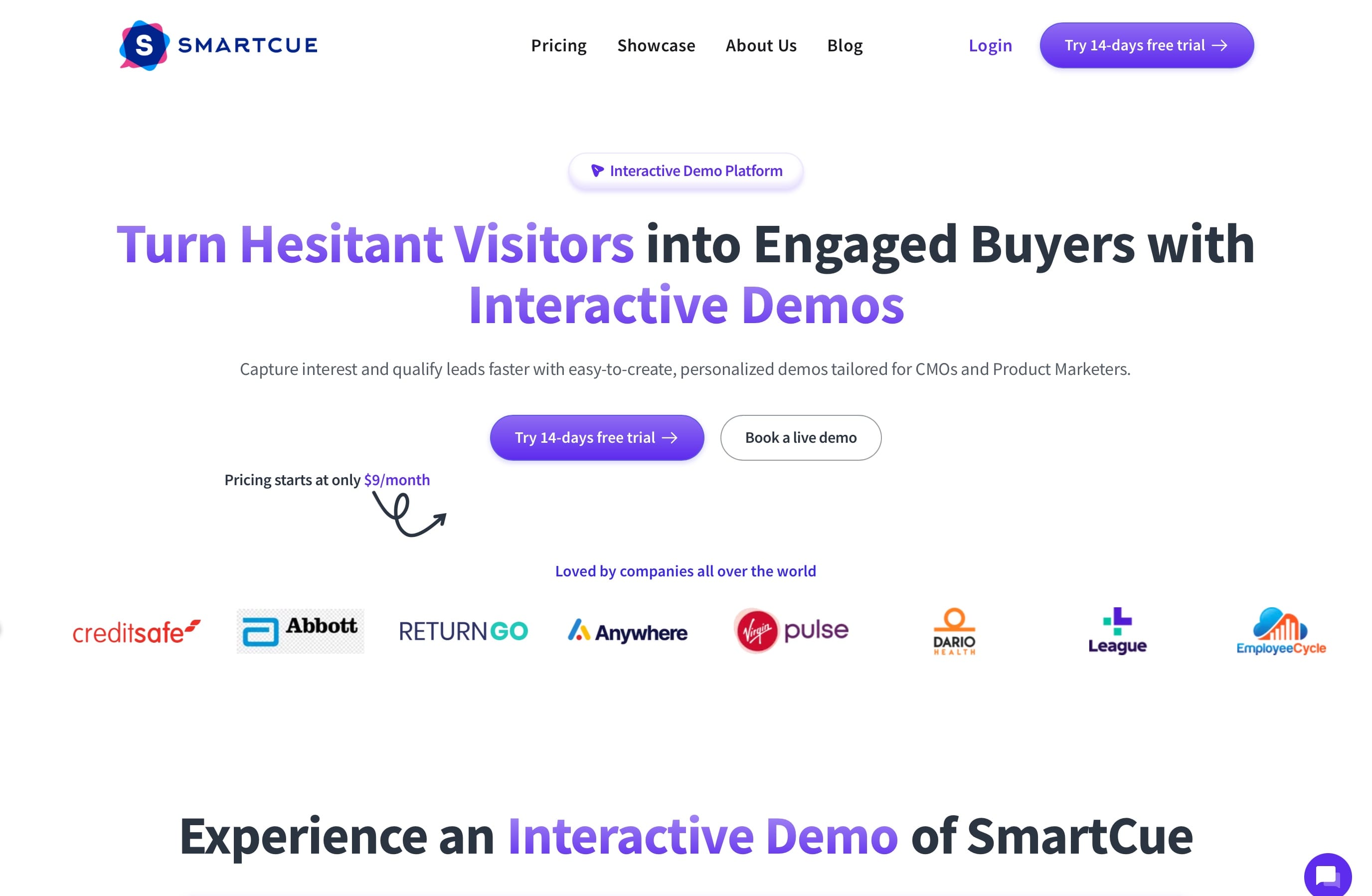
SmartCue is a demo platform built for quick interactive demo creation without engineering. It helps sales and marketing teams turn complex product information into simple, engaging product tours. With its browser extension, you can capture workflows, add interactive elements, and publish new demos in minutes, making it a favorite for teams that need speed and ease of use.
Pricing
SmartCue keeps its pricing simple and transparent, so teams don’t have to worry about hidden costs. Here’s how the plans break down:
Essential – $10 per user/month
Growth – $30 per user/month
Enterprise – Custom pricing
Free Trial – 14 days, no commitment
Why it works
SmartCue is fast to set up. With a chrome extension, you can spin up new demos in minutes, no engineering, no desktop app installs. It is designed for marketing teams and sales reps who want quick demo creation, not endless back-and-forth with the support team.
Key Advantages
Fast demo creation with a simple browser extension
Transparent pricing plans plus a 14-day free trial
CRM integrations with tools like HubSpot, Salesforce, and Pipedrive
Supports interactive product demos, video demos, and demo templates
Easy for marketing teams and sales reps to use without engineering
Things to Keep in Mind
Analytics are more lightweight compared to enterprise-focused demo automation software
Want to see SmartCue in action? Book a live demo and explore how easy it is to create interactive product tours in minutes.
TestBox – Pricing, Features, and Value (G2 Rated 4.8/5)
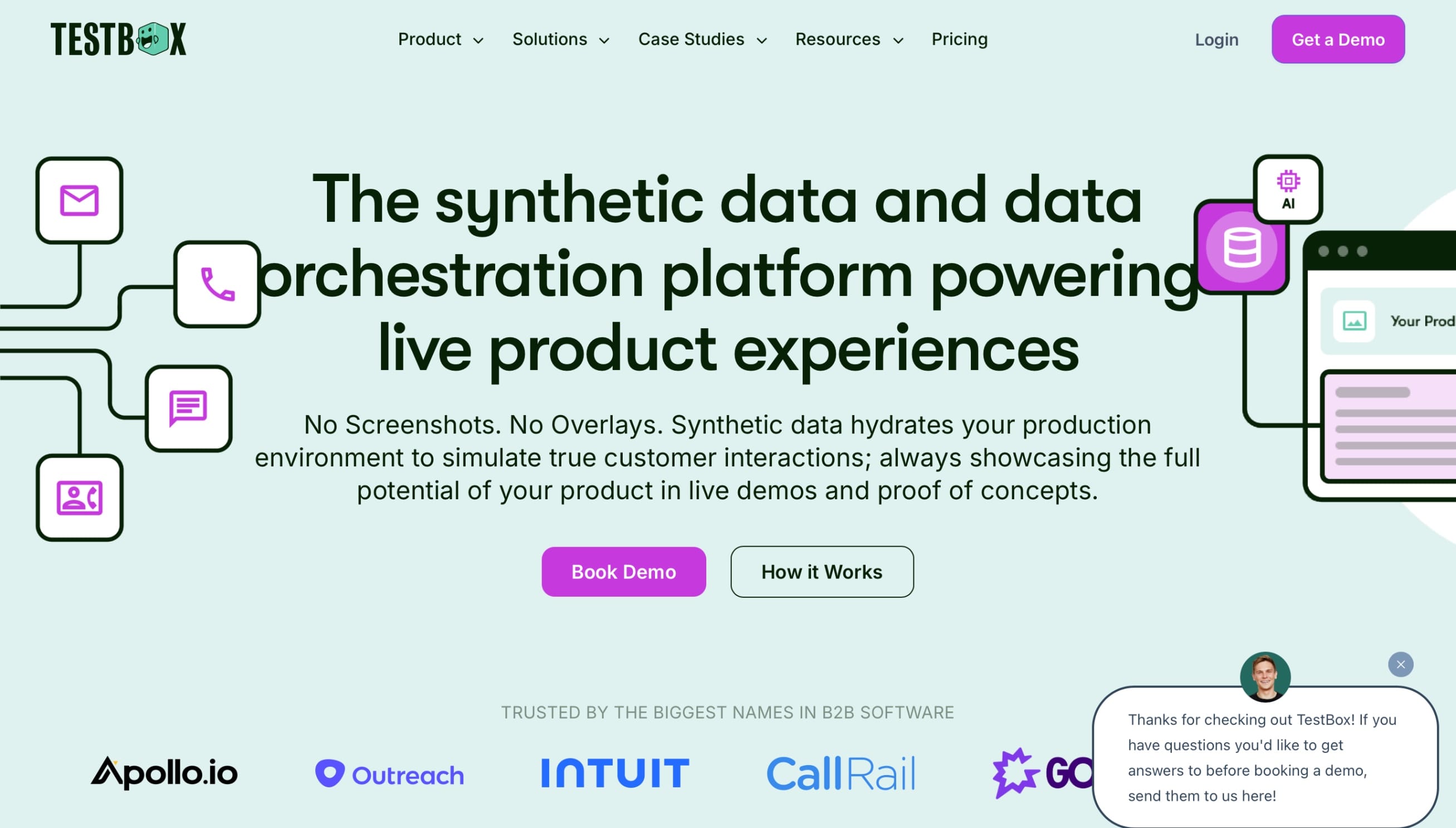
TestBox is a demo automation software that creates sandboxed live demo environments. It’s designed for teams with complex sales use cases who want prospects to explore the product with real data, workflows, and integrations, without touching production.
Pricing
TestBox takes a more enterprise-focused approach with annual contracts that start higher than many competitors. Here’s a quick look at the tiers:
Startup – from $44,750/year
Growth & Enterprise – higher, custom pricing
Free Trial – Not available
Pilot – Proof-of-concept pilots offered
Why it works
The draw of TestBox is authenticity. It lets you run live product experiences powered by data injection and custom data sets. Prospects get hands-on buying experience with realistic workflows, which is valuable for software companies selling data-heavy products.
Key Advantages
Live demo environments close to the actual product
Strong analytics with user-level tracking
Custom data sets for personalized demo experience
Integrates with third-party apps to simulate real workflows
Provides demo templates and guided flows for sales teams
Things to Keep in Mind
High pricing model with added implementation fees
No free trial or free plan
Setup can require time and technical input
Demostack – Pricing, Features, and Value (G2 Rated 4.7/5)
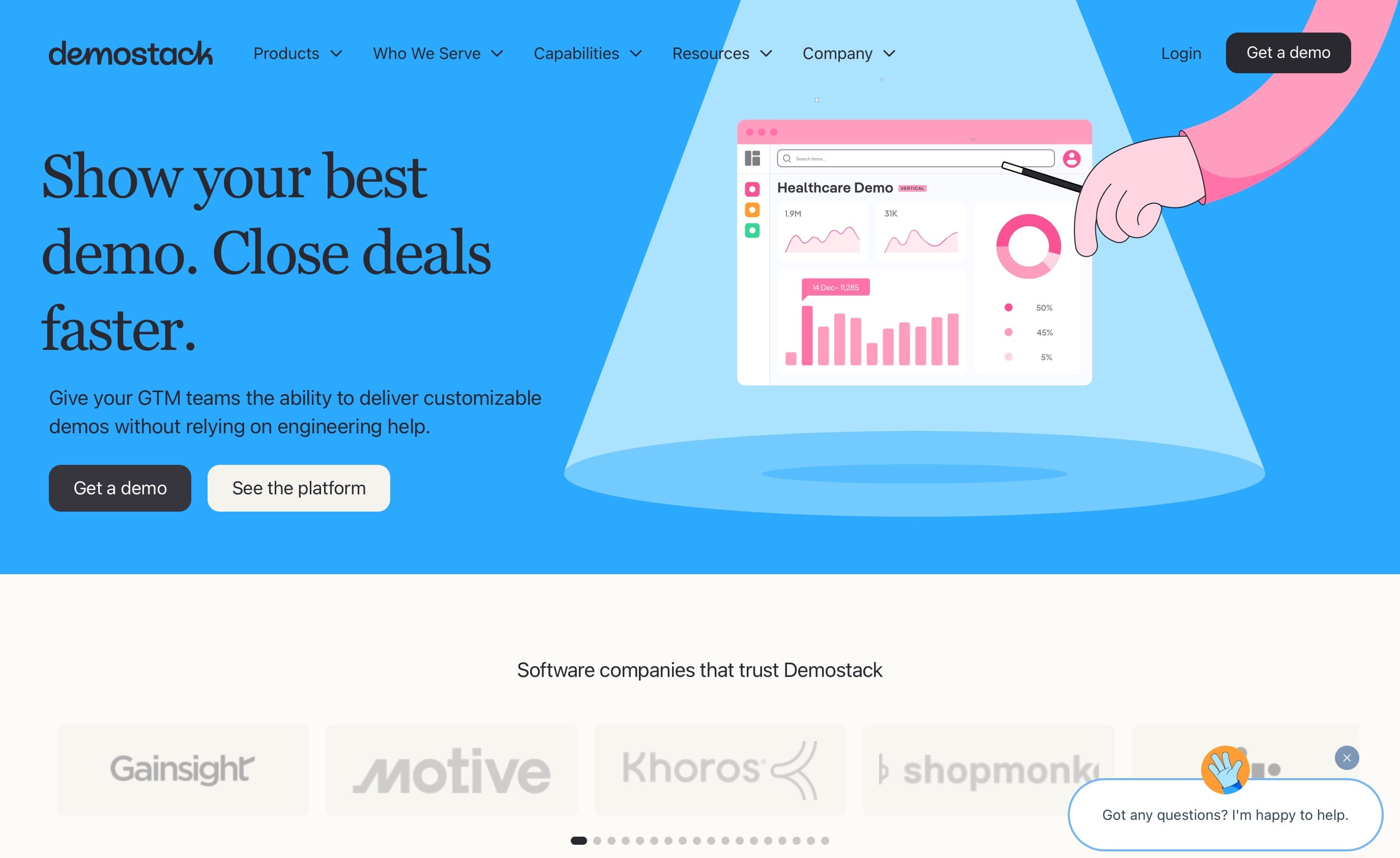
Demostack is an enterprise-focused demo automation platform that clones your product into interactive demo centers. It allows sales teams to deliver consistent, up-to-date interactive product tours with AI-powered demo data, personalization, and centralized demo assets.
Pricing
Demostack positions itself at the premium end of the demo automation market, with costs starting well above entry-level tools. Here’s how their pricing works:
Base Plan – from $55,000/year
Structure – Combination of platform fee + per-user licensing
Free Trial/Plan – Not available
Why it works
Demostack uses cloning technology to replicate the product. It layers customization options, interactive elements, and demo templates to build leave-behinds or live demos that always look polished. For teams that need control over demo assets at scale, it’s a strong enterprise choice.
Key Advantages
Realistic demo experience with AI-generated demo data
Centralized demo assets and demo centers for team members
Customization options and interactive product tours
CRM integrations and analytics support
Strong fit for enterprise sales enablement and trade shows
Things to Keep in Mind
Very high pricing model with no free trial
Requires training and support team involvement for setup
Overkill for startups or lean marketing teams
Feature Comparison: SmartCue vs TestBox vs Demostack
When you’re choosing a demo automation platform, the details matter. Some tools promise rich customization but take weeks to set up. Others focus on enterprise polish but come with a steep learning curve. And then there are platforms built for speed, where your team can spin up demos in minutes without leaning on engineering.
Here’s how SmartCue, TestBox, and Demostack stack up across the core features that shape your demo experience:
Feature | SmartCue | TestBox | Demostack |
|---|---|---|---|
Interactive demo capabilities | Quick interactive product demos created in minutes with a browser extension; ideal for marketing teams and sales reps. | Full live demo environments powered by data injection; strong for data-heavy software companies. | Cloned demo assets and demo centers built for enterprise sales enablement; smaller teams often look for demostack alternatives that are lighter and easier to manage. |
Integrations & workflow compatibility | CRM integrations with HubSpot, Salesforce, Pipedrive; fits seamlessly into sales calls and marketing campaigns. | Integrates with third-party apps to simulate workflows; setup often needs technical team members. | CRM integrations available, but focused more on large-enterprise demo automation software. |
Customization & personalization options | Add cues, chapters, and interactive elements without engineering; fast personalization for specific needs. | Custom data sets create realistic buying experience; highly personalized but setup-heavy. | AI-powered demo data and demo templates; deep customization options but more complex to manage. |
Ease of use & setup time | Quick demo creation with a browser extension; no desktop app or coding needed. | Weeks of setup before fully usable; strong for enterprise sales use cases, less so for lean teams. | Requires support team involvement and training; lighter than some demo automation vendors but not instant. |
AI-powered demo creation & analytics | AI Demo Co-Pilot for quick builds plus light analytics—enough for sales enablement without overwhelming. | Detailed analytics with user-level tracking; may create data overload for smaller teams. | Generates demo data with AI; analytics included but designed around enterprise pricing model. |
When evaluating demo automation platforms, three areas matter most in day-to-day use: interactive demo capabilities, ease of use, and customization. Here’s how SmartCue, TestBox, and Demostack compare:
1. Interactive Demo Capabilities
SmartCue: Quick interactive product demos created in minutes with a browser extension; ideal for marketing teams and sales reps.
TestBox: Full live demo environments powered by data injection; strong for data-heavy software companies.
Demostack: Cloned demo assets and demo centers built for enterprise sales enablement; smaller teams often look for lighter alternatives.
2. Ease of Use & Setup Time
SmartCue: Launch demos fast with a browser extension—no desktop app or coding needed.
TestBox: Requires weeks of setup before fully usable; better fit for enterprise sales teams than lean GTM teams.
Demostack: Setup requires training and support involvement; less heavy than some Demostack competitors but not instant.
3. Customization & Personalization Options
SmartCue: Add cues, chapters, and interactive elements without engineering; quick personalization for specific sales or marketing needs.
TestBox: Uses custom data sets to create realistic buying experiences; highly personalized but setup-heavy.
Demostack: Offers AI-powered demo data and templates; deep customization but more complex to manage.
How Has SmartCue Helped Companies Transform Their Demo Strategy?
We’ve all sat through those demos that drag on, and feel more like a screen share than a sales pitch. SmartCue flips that experience. Instead of workarounds, teams use it to speed up cycles and deliver demos that stick. Strell and RippleHire show how two very different SaaS companies solved their demo challenges with SmartCue.
Strell: From Slow Demos to Instant Wins
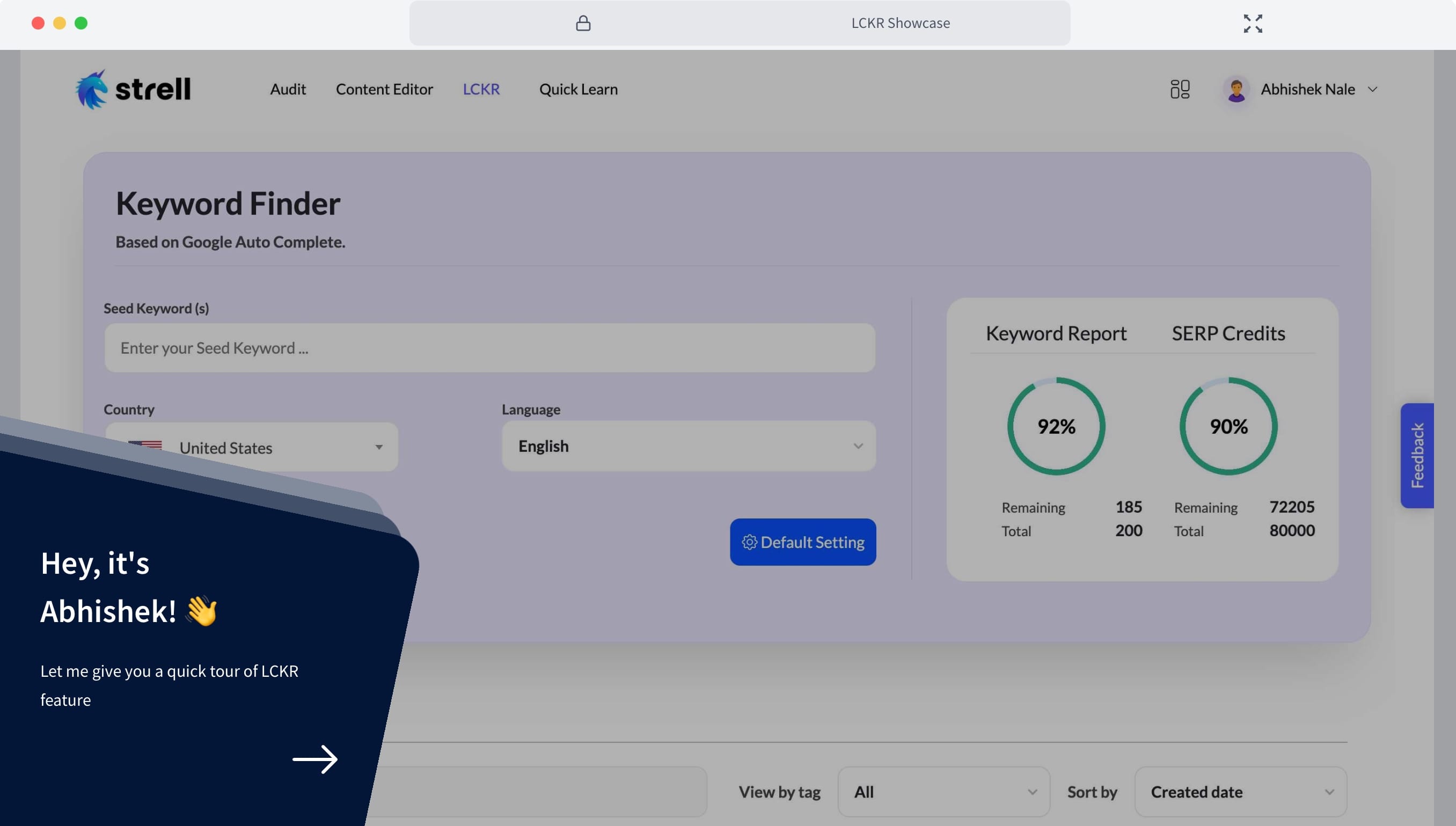
Strell, a growing SaaS company, was stuck with clunky demo creation and low conversions. Their sales team couldn’t personalize quickly, which stretched out the sales cycle.
What changed with SmartCue:
Built their first interactive demo in under five minutes
Sales and marketing teams (no technical background) created demos without engineering help
AI assistant Quilly helped personalize demos for different industries and personas
Real-time analytics gave them the ability to tweak demos on the fly
The result: Faster demo cycles and higher conversion rates. Strell’s team went from hours of manual work to minutes of quick demo creation, closing more deals in less time.
Read the complete Strell success story here.
RippleHire: Turning Static Videos Into Interactive Experiences
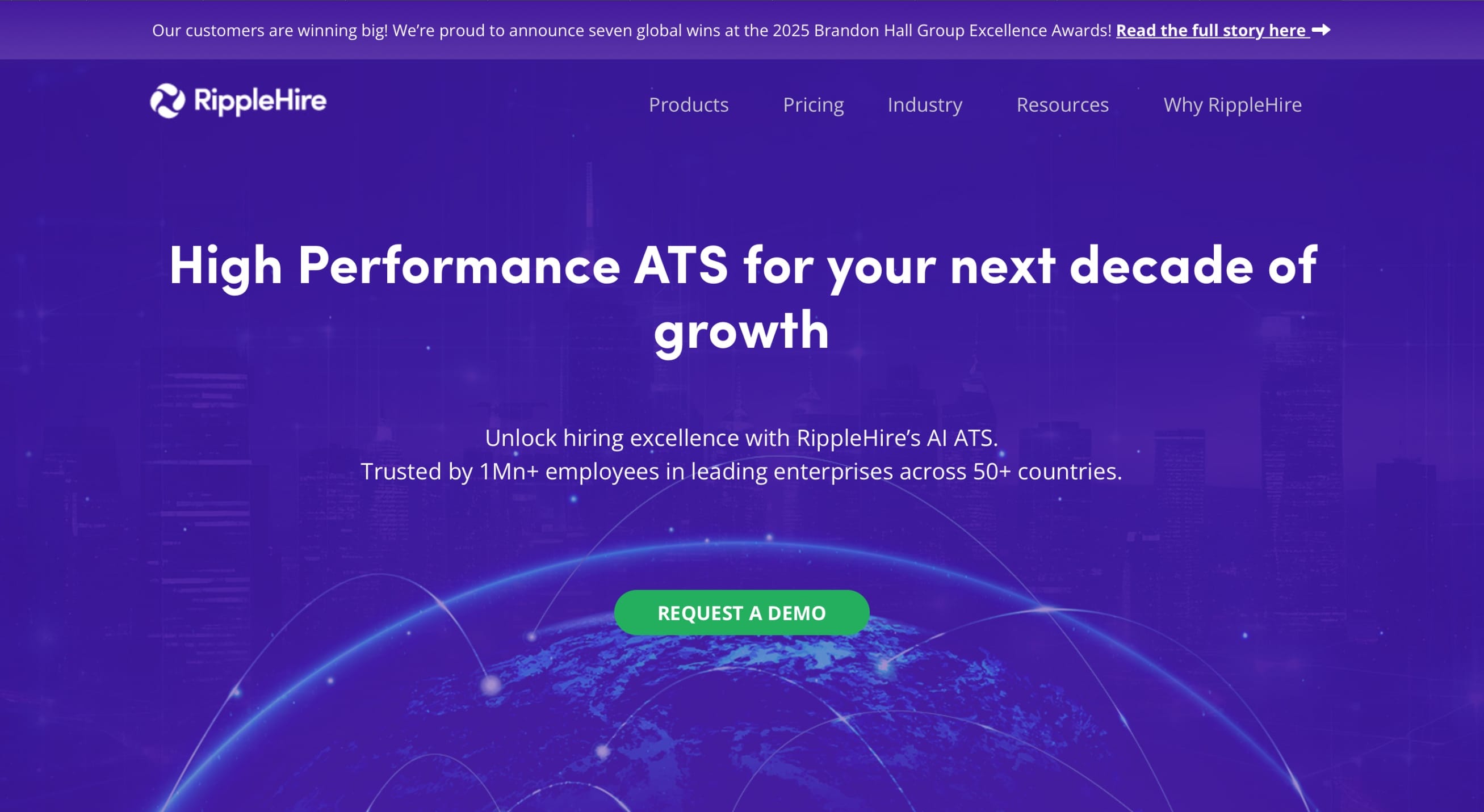
RippleHire faced another common pain: endless video updates for every product change. Their demos were static, time-consuming, and hard to tailor for different audiences.
What changed with SmartCue:
Created interactive demos in less than an hour
Used gated demos to give prospects self-serve access while tracking engagement
Delivered multiple demo perspectives for different stakeholders without rebuilding from scratch
The result: RippleHire shortened their sales cycle by 20% and engaged prospects more effectively, giving their sales team a sharper edge in competitive deals.
Check out the full case study on RippleHire here.
Or, book a live demo.
Which Demo Platform Works Best for Your Budget and Business Size?
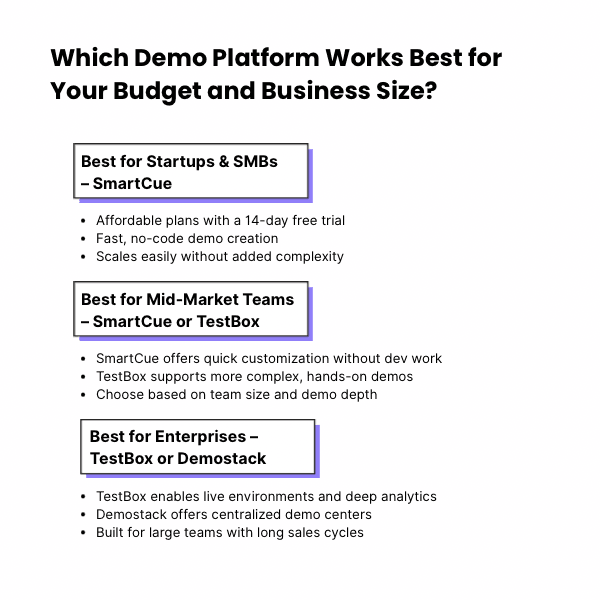
Not every company has the same needs, or the same budget. The right demo automation software depends on how fast you need to move and how much you’re willing to spend.
Why Is SmartCue the Smarter Choice for Startups and SMBs?
For smaller sales teams, SmartCue is the most practical option. Affordable pricing plans, a 14-day free trial, and quick demo creation make it easy to get started without straining the budget. For startups weighing SmartCue vs Demostack competitors, SmartCue is the clear winner: no enterprise-level costs before you’ve even closed your first deals.
What Is the Best Platform for Mid-Market Teams Balancing Cost and Customization?
Growing companies often want more personalization without enterprise pricing. SmartCue still works for most here since it offers customization options with zero engineering effort. TestBox can be a fit if your team needs complex live product demos, but its higher cost and longer setup make it better suited for organizations with dedicated sales enablement teams.
When Do Enterprises Choose TestBox or Demostack?
Enterprises with bigger budgets and long sales cycles often lean toward TestBox or Demostack. TestBox enables live demo environments with detailed analytics, while Demostack offers centralized demo centers and advanced demo assets. That said, some enterprises also evaluate Demostack competitors when they want more flexible pricing or a faster rollout across team members.
Ready to Transform Your Demo Strategy With SmartCue?
If Strell and RippleHire could speed up demo cycles and close deals faster with SmartCue, so can you. Here’s exactly how easy it is to get started:
Step 1: Sign Up & Install the Chrome Extension
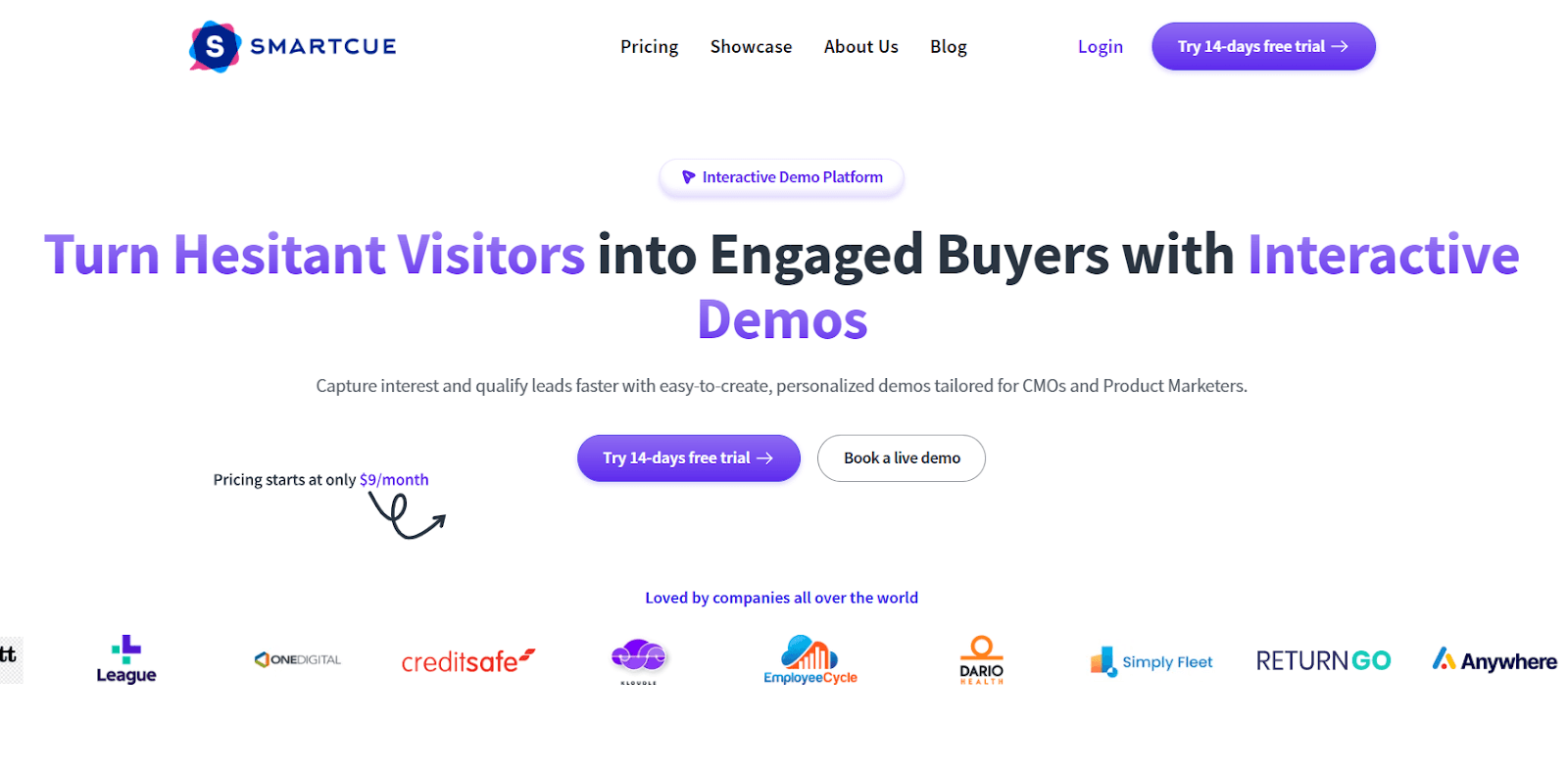
Start your 14-day free trial, set up your workspace, and add the one-click Chrome extension. In minutes, you’re ready to capture your product in action, no desktop app, no IT headaches.
Step 2: Capture & Build Your Demo
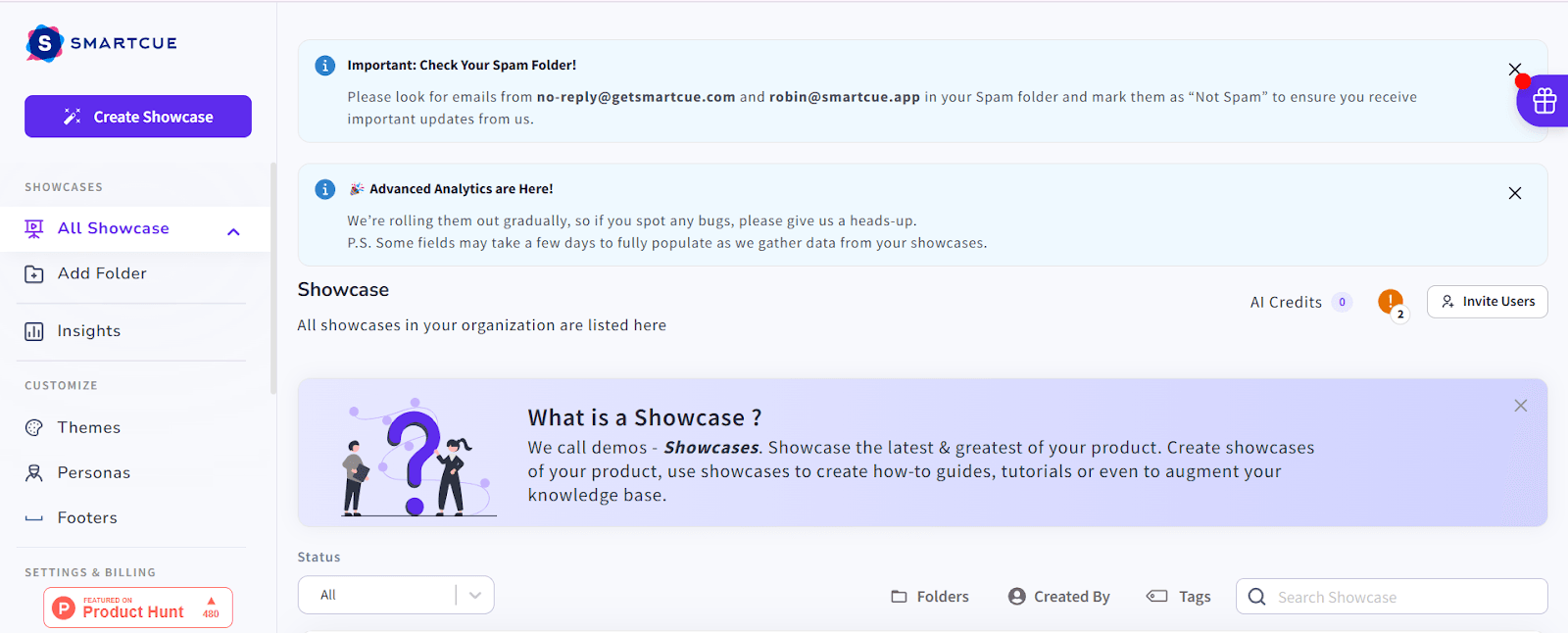
Record a product flow from scratch or use demo templates to save time. Highlight the features that matter most so prospects instantly see your product’s value.
Step 3: Customize for Engagement
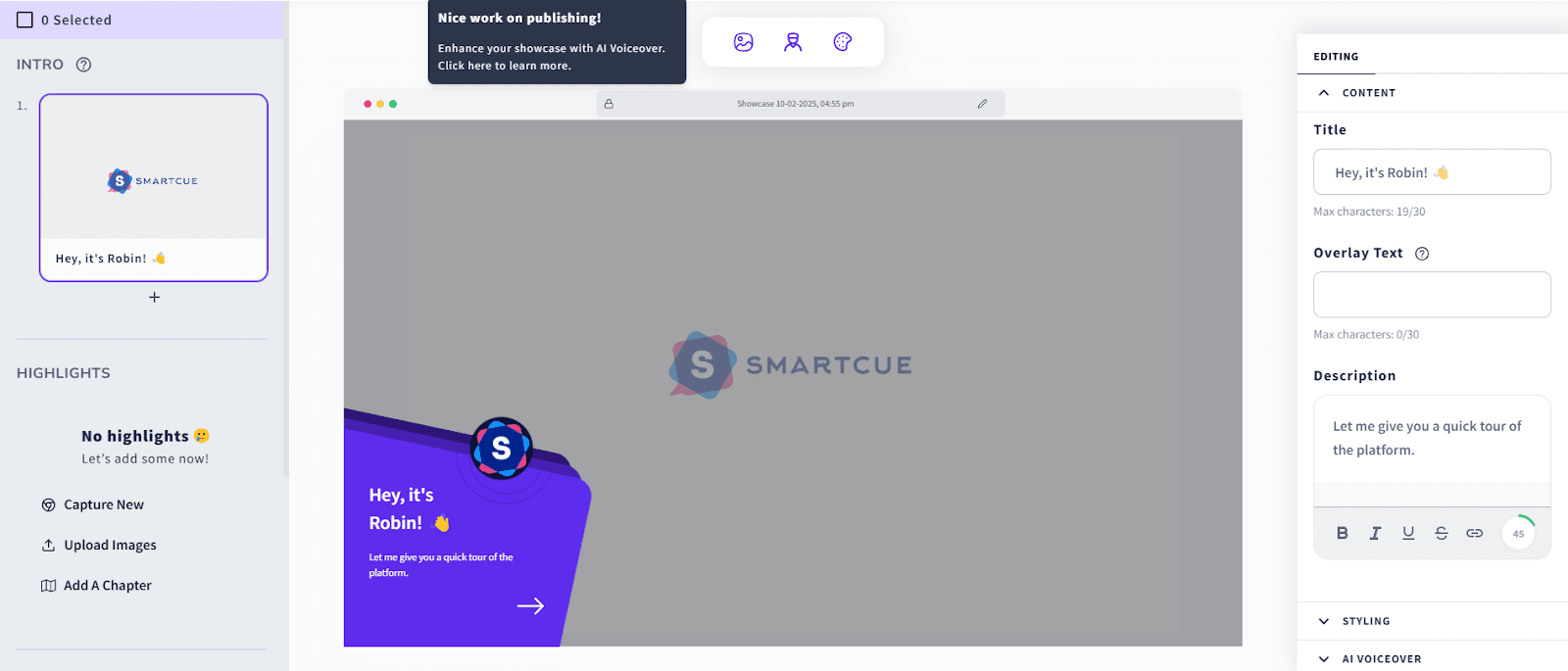
Add tooltips, text overlays, and interactive elements that guide your audience through the story. No more clunky, confusing walkthroughs — you decide what stands out.
Step 4: Share & Track Performance
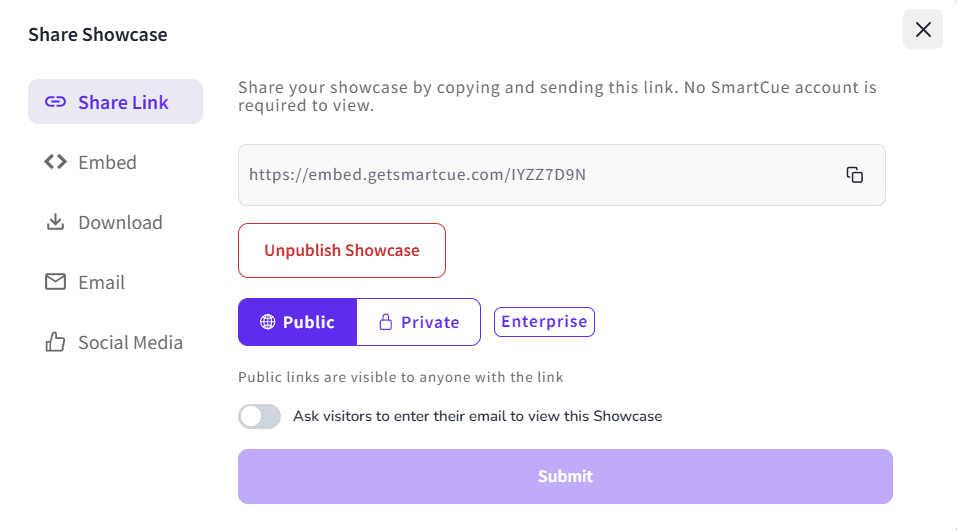
Publish your demo as a link, embed it on your website, or attach it in emails. Then, use SmartCue’s analytics to see how prospects interact, like clicks, drop-offs, and what kept them hooked, so your sales team can refine the pitch with data.
What’s the Smarter Way to Future-Proof Your Demos?
At the end of the day, prospects don’t care how complex your demo software is; they care about clarity and speed. The right tool should cut friction, shorten cycles, and make your product’s value obvious from the very first click.
That’s where SmartCue stands apart. While TestBox and Demostack cater to heavy enterprise setups, SmartCue delivers the essentials sales and marketing teams actually need: quick setup, transparent pricing, and demos that convert.
If your demos are slowing down deals instead of closing them, it’s time to rethink your approach. With SmartCue, you can turn every demo into a winning moment, without burning months or budget.
Try SmartCue free for 14 days and see the difference for yourself.
Frequently Asked Questions
1. Can you list the most recommended free alternatives to TestBox?
SmartCue is the standout free alternative with a 14-day trial and affordable ongoing plans. Unlike TestBox, it doesn’t require heavy setup or enterprise pricing, making it practical for startups and SMBs. Other teams also explore Loom or Walnut for lighter demo needs.
2. Do personalized interactive demos actually work?
Yes, personalized demos increase engagement and shorten sales cycles by showing prospects only the features that matter to them. Interactive elements like tooltips and guided flows help prospects connect product value to their pain points, turning generic walkthroughs into meaningful buying experiences.
3. Why are teams exploring alternatives to TestBox?
TestBox delivers authentic live demo environments but comes with a high cost, no free trial, and lengthy setup. Startups and SMBs often explore alternatives like SmartCue because they need faster setup, transparent pricing, and simpler tools that don’t require engineering support.
4. Which platform is better for creating interactive product demos: Demostack, TestBox, or SmartCue?
For quick, no-code interactive demos, SmartCue is the best choice. TestBox suits enterprises needing live environments, while Demostack focuses on polished enterprise demo centers. For most SMBs and mid-market teams, SmartCue balances speed, affordability, and interactivity better than its competitors.
5. How does user experience differ between Demostack, TestBox, and SmartCue for non-technical users?
SmartCue is easiest for non-technical users, offering a simple browser extension and no-code customization. TestBox requires technical setup and support, while Demostack often needs training and team involvement. Non-technical sales or marketing teams usually find SmartCue’s workflow fastest and most intuitive.
6. What are the main differences between TestBox and Storylane?
TestBox creates full sandboxed demo environments with live data, making it ideal for complex enterprise sales. Storylane, on the other hand, focuses on quick, interactive no-code demos that marketing and sales teams can build and share in minutes.
Comments
Your comment has been submitted